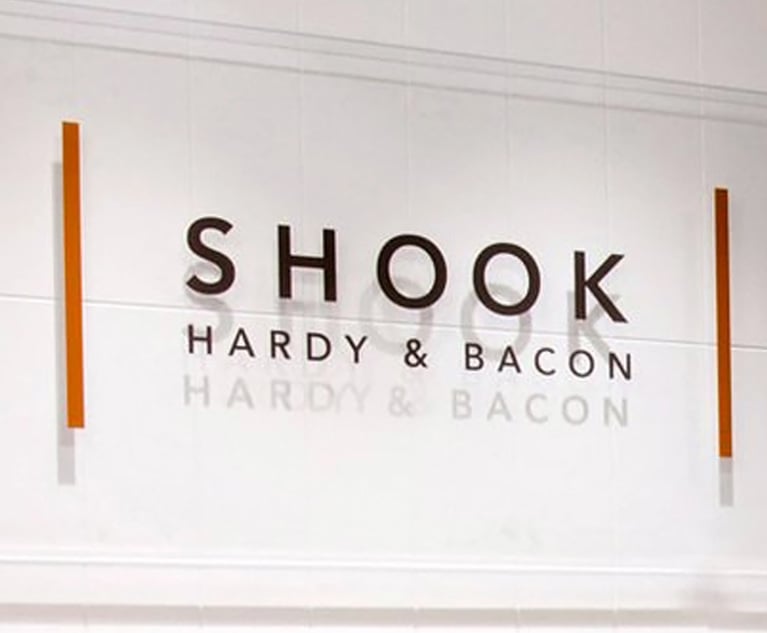 Photo: Shutterstock
Photo: ShutterstockExpert Says New European Whistleblower Protections 'Leave the US in the Dust'
The European Union has approved sweeping new protections for whistleblowers and is sending the new rules on to member countries to adapt them into the countries' own laws.
October 14, 2019 at 03:39 PM
4 minute read
The original version of this story was published on Corporate Counsel
The European Union has approved sweeping new protections for whistleblowers and is sending the new rules on to member countries to adapt them into the countries' own laws.
"It's a real thrill for those of us on the front lines," said Tom Devine, legal director of the Government Accountability Project in Washington, D.C., which has helped thousands of whistleblowers with cases. Devine has worked to pass or defend 34 national or international whistleblower laws, including nearly all U.S. laws, over the last two decades.
"The EU law is stronger than any U.S. law," he told Corporate Counsel on Monday. "It leaves the U.S. in the dust. We were the pioneers on whistleblower law, but compared to the advances others have made, we are becoming more like the reptiles."
Devine cited six key areas affected by the directive that favor whistleblowers. They include:
- Tougher on employer retaliation. He said U.S. law mainly covers only workplace retaliation, such as termination or demotion. The EU directive does that too, but expands to include other forms such as threats of criminal or civil suits against the employee.
- Broader scope of who is protected from retaliation. U.S. law covers the whistleblower, he said, while the new EU rules also protect shareholders, labor unions, non-government organizations, suppliers, future employers and others who support the employee.
- Lower standard to qualify for protection. The EU requires only that the whistleblower believed the misconduct information to be true. In the U.S., Devine said the employee has to believe they are disclosing a violation of law, "which can be hard for someone who's not a lawyer," he added.
- Easier burden of proof. In the EU, Devine said, the employee only must show they had engaged in protected speech when the retaliation occurred. The employer does not have to prove a connection between the speech and the retaliation. He said U.S. law places the burden on the employee to prove a connection, while the EU puts the burden on the employer to prove that there was none.
- More access to courts. The EU guarantees whistleblowers in federal civil service have access to courts to pursue claims. In the U.S. federal workers are relegated to administrative hearings, he said, where the employer wins 90% of the rulings.
- More financial support. The EU law provides legal aid to whistleblowers who cannot afford to hire a commercial lawyer. "Speaking from experience," Devine said, "this is often our greatest challenge in the U.S."
The European Parliament initially approved the new law in April, and EU ministers formally approved it Oct. 7. The member countries have until 2021 to enact the directive.
Previously in the EU, whistleblowing cases were handled by the individual member countries, with inconsistencies across the bloc. Now member countries will have to follow the EU directive, but can impose their own sanctions for violations.
Not every country was happy with the breadth of the new law. Hungary, Ireland and Luxembourg, for example, objected to expanding its scope to include tax fraud. Hungary and Ireland filed statements of disagreement with rule's scope.
Moritz Homann, director of compliance services for the EQS Group in Munich, sees the law as a win-win for employers and employees. EQS is a management consulting firm, and Homann recently wrote a company blog exploring the new directive.
He told Corporate Counsel on Monday the directive is not overly burdensome on employers while, "on the flip side, the requirements can prevent huge damage and financial loss by learning early about potential misconduct."
A key difference, Homann said, is that the new law requires companies with more than 50 employees to set up internal whistleblowing channels, apart from regulators. A "most suitable person" must be designated to receive complaints, and that person can be a legal counsel, compliance officer, head of human resources or other executive.
Employers also must have a clearly stated policy about whistleblowing procedure, provide a timely response to the whistleblower and protect the confidentiality of the employee.
Homann added, "We're convinced it's the right step, since we see many whistleblowers doing society a favor by uncovering illegal and unethical behavior in organizations."
This content has been archived. It is available through our partners, LexisNexis® and Bloomberg Law.
To view this content, please continue to their sites.
Not a Lexis Subscriber?
Subscribe Now
Not a Bloomberg Law Subscriber?
Subscribe Now
NOT FOR REPRINT
© 2025 ALM Global, LLC, All Rights Reserved. Request academic re-use from www.copyright.com. All other uses, submit a request to [email protected]. For more information visit Asset & Logo Licensing.
You Might Like
View All
Allies Wanted: After $100M Victory, These Lawyers Seek to Bolster Plaintiff's Bar
5 minute read

With 'Fractional' C-Suite Advisers, Midsize Firms Balance Expertise With Expense
4 minute readTrending Stories
Who Got The Work
Michael G. Bongiorno, Andrew Scott Dulberg and Elizabeth E. Driscoll from Wilmer Cutler Pickering Hale and Dorr have stepped in to represent Symbotic Inc., an A.I.-enabled technology platform that focuses on increasing supply chain efficiency, and other defendants in a pending shareholder derivative lawsuit. The case, filed Oct. 2 in Massachusetts District Court by the Brown Law Firm on behalf of Stephen Austen, accuses certain officers and directors of misleading investors in regard to Symbotic's potential for margin growth by failing to disclose that the company was not equipped to timely deploy its systems or manage expenses through project delays. The case, assigned to U.S. District Judge Nathaniel M. Gorton, is 1:24-cv-12522, Austen v. Cohen et al.
Who Got The Work
Edmund Polubinski and Marie Killmond of Davis Polk & Wardwell have entered appearances for data platform software development company MongoDB and other defendants in a pending shareholder derivative lawsuit. The action, filed Oct. 7 in New York Southern District Court by the Brown Law Firm, accuses the company's directors and/or officers of falsely expressing confidence in the company’s restructuring of its sales incentive plan and downplaying the severity of decreases in its upfront commitments. The case is 1:24-cv-07594, Roy v. Ittycheria et al.
Who Got The Work
Amy O. Bruchs and Kurt F. Ellison of Michael Best & Friedrich have entered appearances for Epic Systems Corp. in a pending employment discrimination lawsuit. The suit was filed Sept. 7 in Wisconsin Western District Court by Levine Eisberner LLC and Siri & Glimstad on behalf of a project manager who claims that he was wrongfully terminated after applying for a religious exemption to the defendant's COVID-19 vaccine mandate. The case, assigned to U.S. Magistrate Judge Anita Marie Boor, is 3:24-cv-00630, Secker, Nathan v. Epic Systems Corporation.
Who Got The Work
David X. Sullivan, Thomas J. Finn and Gregory A. Hall from McCarter & English have entered appearances for Sunrun Installation Services in a pending civil rights lawsuit. The complaint was filed Sept. 4 in Connecticut District Court by attorney Robert M. Berke on behalf of former employee George Edward Steins, who was arrested and charged with employing an unregistered home improvement salesperson. The complaint alleges that had Sunrun informed the Connecticut Department of Consumer Protection that the plaintiff's employment had ended in 2017 and that he no longer held Sunrun's home improvement contractor license, he would not have been hit with charges, which were dismissed in May 2024. The case, assigned to U.S. District Judge Jeffrey A. Meyer, is 3:24-cv-01423, Steins v. Sunrun, Inc. et al.
Who Got The Work
Greenberg Traurig shareholder Joshua L. Raskin has entered an appearance for boohoo.com UK Ltd. in a pending patent infringement lawsuit. The suit, filed Sept. 3 in Texas Eastern District Court by Rozier Hardt McDonough on behalf of Alto Dynamics, asserts five patents related to an online shopping platform. The case, assigned to U.S. District Judge Rodney Gilstrap, is 2:24-cv-00719, Alto Dynamics, LLC v. boohoo.com UK Limited.
Featured Firms
Law Offices of Gary Martin Hays & Associates, P.C.
(470) 294-1674
Law Offices of Mark E. Salomone
(857) 444-6468
Smith & Hassler
(713) 739-1250









